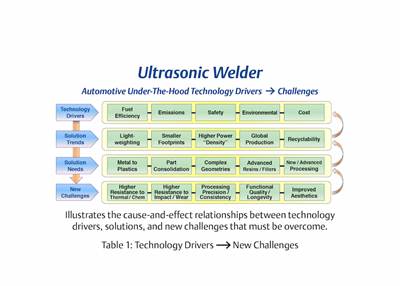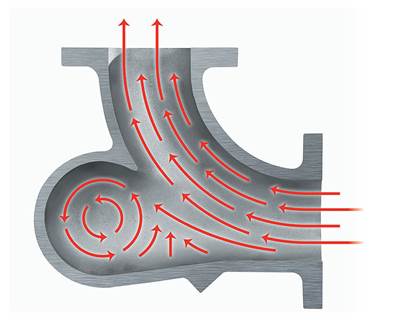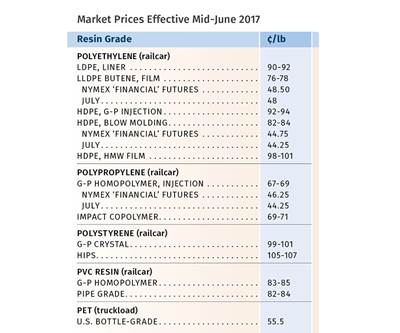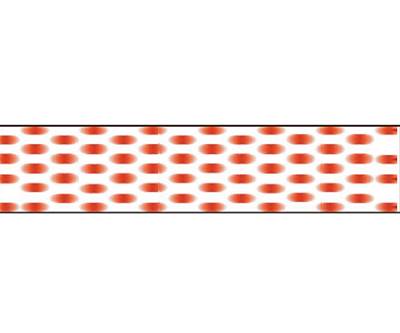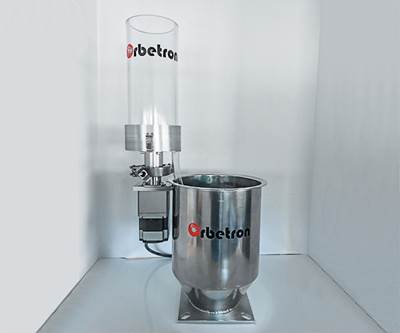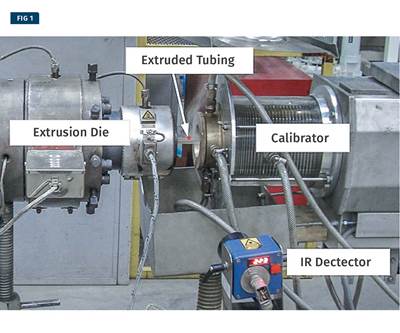Articles
What Is the Right Plastics Joining Process for You? Part 1
Changing demands, advancing technology and a process-neutral approach to plastics joining for under-the-hood automotive parts.
Read MoreLife Cycle Assessment of PVC Water and Sewer Pipe
Comprehensive study compares health, safety, performance and sustainability attributes of different pipe materials.
Read MoreThin-Walled Biobased Packaging That’s Injection-Moldable and Commercially Viable
A consortium in The Netherlands has come up with an innovative three-pronged approach.
Read MoreCanadian, Mexican and U.S. Plastics Organizations Meet to Modernize NAFTA
The heads of PLASTICS, CPIA and ANIPAC met this week in Mexico City to reexamine the trade deal 24 years after it passed and before President Trump focuses on it.
Read MoreNew Shelf-life Extending Packaging Technologies
Both Nova Chemicals and Mitsubishi Gas Chemical America have launched novel packaging technologies.
Read MoreFemale Founded and Led Bioplastics Products Company On the Move
Repurpose is aiming to expand line of PLA-based disposable and certified compostable picnic and party wear.
Read MorePP Compounder Elbows Out Production Snafus
The Plastics Group of America eliminates monthly production stoppages, improves quality, and slashes maintenance expenses by installing new elbows on a pneumatic conveying line.
Read MoreMost Resin Prices Down or Flat; PC and Nylon 66 Up for Now
Falling feedstock prices are a key driver as we enter the third quarter.
Read More10 Things to Know When Specifying Vacuum Conveying Systems for Powders
The priority is to maximize movement of powders while minimizing dust exposure.
Read MoreUnderstanding Low-Rate Feeding for Continuous and Batch Processes
Molders and extruders that need to feed tiny amounts of material to their process require precision in both the material being fed and the equipment doing the dosing. When a shot size consists of three pellets, there is no margin for error.
Read MoreHow to Collect and Interpret Extrusion Process Data; Part 3
In this final installment, learn how process data can be used to identify and fix extrusion issues.
Read More
